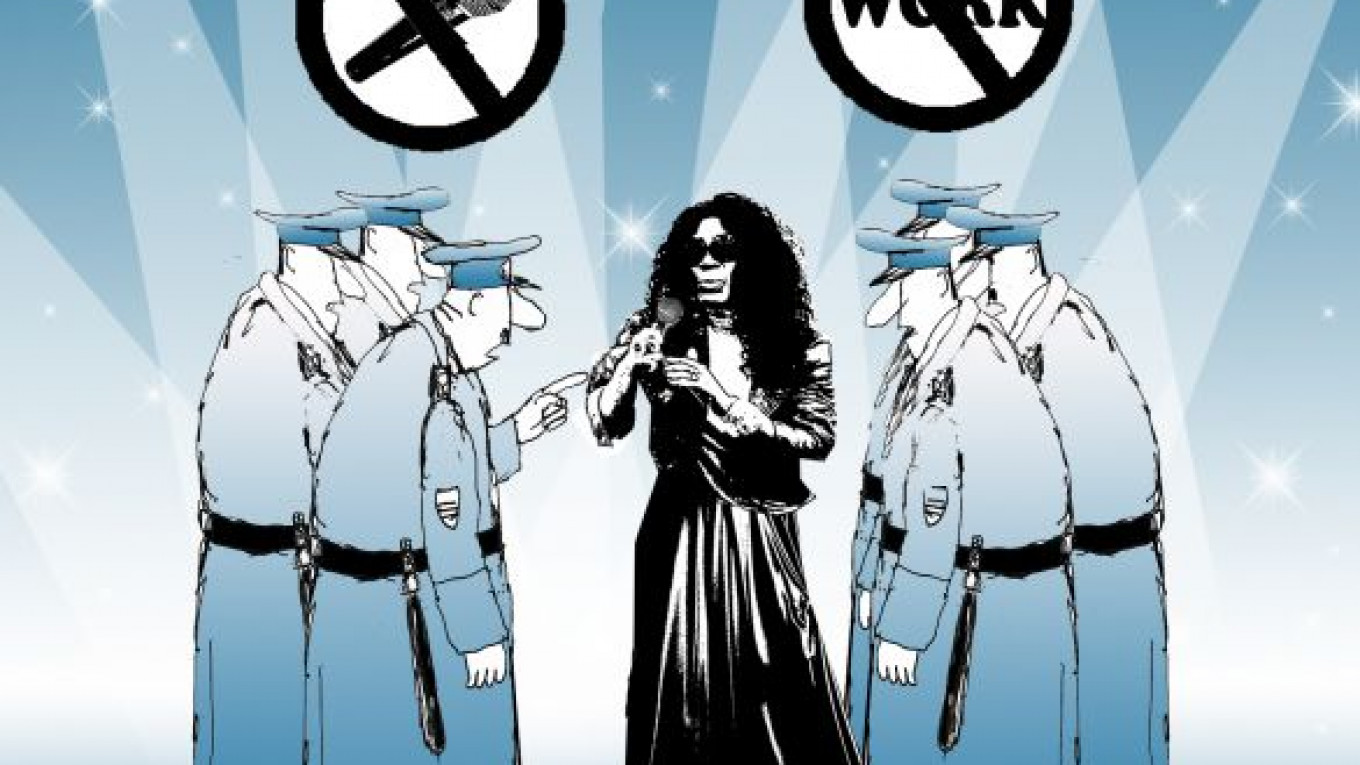When British boy band of the 1990s East 17, and euro pop acts Snap, La Bouche and Culture Beat walked off after a nostalgic disco night at Olimpiisky Sports Complex this month, they had a very unpleasant surprise. The Federal Migration Service locked them in their dressing rooms and fined them for working on tourist visas.
It was an eye-opening story, not just to find out what East 17 are up to these days. People in the music business came out to say this was common practice, despite the reported million-dollar fees for top stars who perform at private parties.
The promoters, Rosdance, swore blind that the groups were performing for free for publicity, Channel One television reported. But the migration service did not really buy this version since the concert had tickets on sale.
"They could just as easily walk into the dressing room of Madonna or Paul McCartney. Such methods have a negative effect on the country's image," organizer Alexander Uneshkin complained to Kommersant.
Russian media joked about the fact that touring musicians were in a similar position to Central Asian laborers on building sites.
Channel One showed Jacky Sangster from German dance act Culture Beat, which had a hit back in the 1990s with "Mr. Vain," indignantly explaining that her passport was at her hotel. With admirable chutzpah, she apparently told the channel that it would have to pay to film her. An organizer told Kommersant that she burst into tears from stress, however.
In the end, the musicians were fined just 3,000 rubles ($100) each, while the migration service could fine the organizers up to 800,000 rubles per musician, Channel One reported.
People in the music industry said the raid had exposed a dirty little secret, but others said the paperwork and fees for issuing the proper papers would swallow up the profits from all but the biggest stars.
"The vast majority of musicians come to Russia not as professionals but as tourists. Possibly this does not affect big stars and stadium concerts … but it directly affects practically all of those who perform in clubs," Afisha magazine wrote.
To do things properly, Kommersant wrote, the organizers would have to get a permit to hire foreigners and then send in copies of the musicians' exam certificates and test results for HIV, syphilis and tuberculosis. Of course these procedures are just as unpleasant for all the other foreigners who go through them, but somehow Russia worries more about Madonna.
Stars such as Madonna, who is set to tour Russia in August, contribute huge sums to the budget because they are paying the nonresident tax rate of 30 percent, Komsomolskaya Pravda wrote. But it warned that Madonna might have a sense of "shop floor solidarity" with her fellow musicians and pull out after the scandal.
Meanwhile, Madonna found herself caught up in another Russian scandal. Journalist Masha Gessen in a New York Times blog Monday urged her to cancel a concert in Saint Petersburg because of the city's new law fining people for propaganda of homosexuality to minors, a vague concept that could be used to outlaw any public gay rights event.
But Madonna responded on Facebook, saying she wanted to support the gay community and would raise the "ridiculous" law during her concert. Gay rights campaigner Nikolai Alexeyev dismissed this, saying her words on stage would mean nothing while the economic effect of canceling the concert would be felt by the authorities. But in a country where no celebrity with a fraction of Madonna's following ever backs gay rights, I think whatever she says will get through.
A Message from The Moscow Times:
Dear readers,
We are facing unprecedented challenges. Russia's Prosecutor General's Office has designated The Moscow Times as an "undesirable" organization, criminalizing our work and putting our staff at risk of prosecution. This follows our earlier unjust labeling as a "foreign agent."
These actions are direct attempts to silence independent journalism in Russia. The authorities claim our work "discredits the decisions of the Russian leadership." We see things differently: we strive to provide accurate, unbiased reporting on Russia.
We, the journalists of The Moscow Times, refuse to be silenced. But to continue our work, we need your help.
Your support, no matter how small, makes a world of difference. If you can, please support us monthly starting from just $2. It's quick to set up, and every contribution makes a significant impact.
By supporting The Moscow Times, you're defending open, independent journalism in the face of repression. Thank you for standing with us.
Remind me later.






